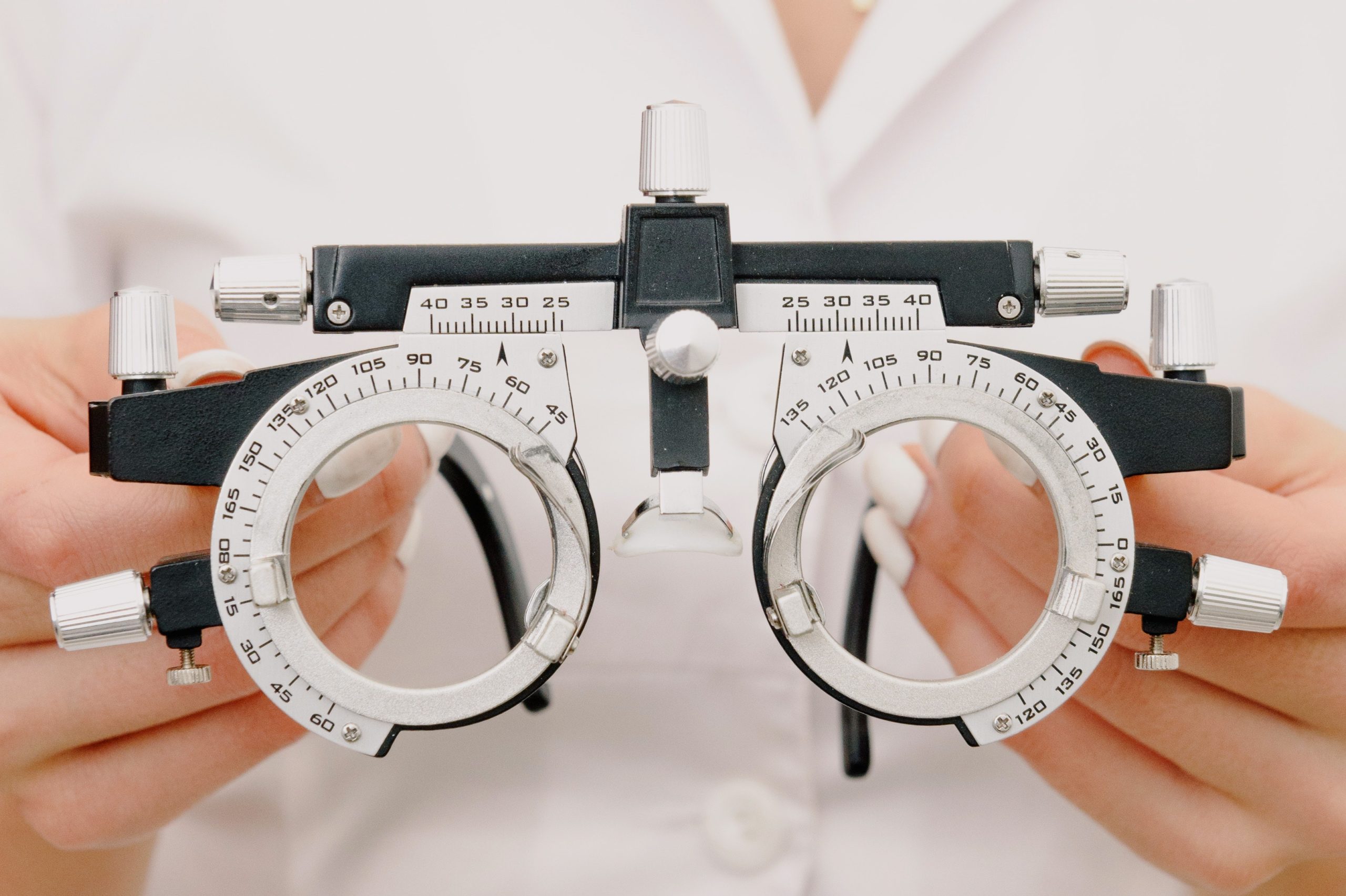
Each year over 700,000 people undergo LASIK eye surgery which can cost them anywhere between $1,000 to $4,000. On top of that, a person experiencing the LASIK surgery will also be unable to work full time, resulting in a further dent in their finances. Therefore, many people who are considering LASIK have concerns about whether their surgery is covered by insurance? Unfortunately, most insurance providers consider LASIK an elective procedure and not something you cannot live without. People suffering from astigmatism can use a combination of glasses and contact lenses to get the same vision correction, so it is not typically covered by insurance. However, the good thing is that there are some popular options and a few tips and tricks for LASIK patients based in the US and Canada that can help them cover up the cost of LASIK surgery.
Table of Contents
The Average Cost of LASIK Eye Surgery
The cost of LASIK eye surgery varies greatly, ranging from $1,000 to $4,000 for each eye. According to a paper published in Clinical Ophthalmology in 2021, the average cost of LASIK surgery in the United States in 2020 was $2,632 per eye. It’s worth noting that commercials offering LASIK for as little as $250 are usually for minor adjustments and are intended to entice people to inquire more, so do not go into LASIK surgery thinking it will cost you $250.
Several factors can affect the cost of LASIK surgery; these include:
- Location: If you are currently residing in a city center with a higher cost of living, you are most likely to pay a premium on your LASIK surgery as well.
- Experience of the doctor or center: If a doctor is in great demand, generally due to a well-deserved reputation, their time is valuable, and market forces will push up the price.
- Doctor’s overhead: If your doctor owns the laser equipment, the procedure’s marginal cost is lower, and they may pass those savings on to you. Doctors who are leasing or have a high cost per case, on the other hand, must boost their prices to make them financially viable. So it is a good idea to evaluate all of your solutions before choosing where you want the operation to be carried out.
Some other expenses that you have to watch out for:
- At least one year of pre-and post-operative examinations
- Fees for the facility and the surgeon
- Drops and medicines for the eyes after surgery
Financial Options Available for LASIK Surgery
Vision Insurance
If your health insurance company runs its own vision plan, it may have a unique deal with a local LASIK provider. For further information, contact your service provider. Some popular insurers who offer a considerable discount on LASIK surgery include:
Davis Vision: They provide considerable discounts ranging from $1,000 to $2,000 per eye. With over 110,000 points of access, they are worth checking out.
EyeMed: They will give you a 15% discount off normal LASIK rates or a 5% discount off promotional prices.
Health Savings Account
If you plan ahead and set aside pre-taxed cash into a health savings account (HSA) they can help you pay for your LASIK surgery. You may contribute up to $3,650 to an individual and $7,300 to families HSA every year (according to the Internal Revenue Service based on 2022). These amounts are exempt from tax and should be sufficient to take care of your surgery without significantly straining your finances.
LASIK Financing in the US
For laser eye surgery patients in the United States and Canada, TLC Laser Eye Centers offers financing alternatives and designed a credit card in collaboration with CareCredit in the United States. This credit card provides unique financing possibilities for all your healthcare needs. Click here to learn more on TLC LASIK financing.
Flexible Spending Accounts
A Flexible Spending Account (FSA) is a type of account that requires your employer’s sponsorship and allows you to pay for some medical expenditures before taxes. In 2022 the amount accounts for $2850. It can be used to pay for a variety of elective operations, such as laser eye surgery and a variety of other medical requirements.
The employee simply decides how much money they want to be withdrawn from their salary on a monthly, tax-free basis to cover the cost of medical treatment the year before the plan takes effect. The employee can have surgery at any time during the year and pay for it using tax-free cash, saving up to 40% on the LASIK operation, depending on their tax rate.
Vision Service Plan (VSP) option for LASIK
VSP (Vision Service Plan) has been around since 1955 and assists people in paying for eye tests, glasses, and surgeries. The firm now provides partial coverage for LASIK and other vision correction treatments, which can assist in reducing the overall cost of LASIK.
VSP has the advantage of not requiring referrals or claim forms. All you have to do is check online to determine if you qualify for VSP benefits. Then you double-check that your laser vision doctor is a VSP member and make an appointment to see whether you’re a suitable candidate for LASIK surgery, and you’ll be on your way to improved vision in no time.
Alphaeon Finance
Alphaeon is a credit card that may only be used for services in ophthalmology, dermatology, dentistry, and plastic surgery. The card provides a variety of monthly payment choices, so you may enhance your eyesight with LASIK without breaking the bank.
For each transaction over $250, Alphaeon offers unique financing solutions with credit lines up to $25,000. The card can be used for future ophthalmology services or any other medically related operation.
For any purchases above $250, Alphaeon offers 0% interest if the whole is paid within 6 or 12 months. You may also qualify for a 14.99 percent APR for bigger expenses that can be paid off in 24, 36, 48, or 60 months thus taking a lot of stress off your shoulders.
CareCredit
CareCredit is another financing option for people who cannot afford to pay for LASIK in full. CareCredit is a credit card, but it is not the same as a standard credit card. The card is used to cover out-of-pocket medical expenditures not covered by insurance. Special financing options are available with the CareCredit healthcare credit card that are not available with most other cards.
The CareCredit network includes over 225,000 registered providers. Once you’ve applied for the card and been authorized, you may use it at any CareCredit-accepting establishment. Choose from a variety of short-term financing options, such as 6, 12, and 18 months, and pay no interest if the entire amount is paid before the promotional period ends. Long-term financing is also available via CareCredit, with APRs ranging from 14.9 percent to 16.9 percent for 24, 36, 48, and 60 months.
Applying for a Same Day Payday Loan
The above solutions work best if you have a good credit score, as insurance providers and credit card companies only work with individuals who possess good credit ratings. Unfortunately, not everyone is blessed with a good score and may have difficulty getting a credit card or insurance coverage at good rates. If you urgently need to undergo LASIK and find yourself short of money, you may consider taking a payday loan.
They are short-term loans that require no credit check or pledge of any collateral. You can apply for them online and get approvals within one working day. Although payday loans are easy to get, they can be expensive and often have APR rates of over 200%. So, only consider payday loans if you are in dire need of money.
Is LASIK Worth the Investment?
Because your insurance may not directly cover LASIK surgery, this begs the question: Is LASIK really worth the investment, given how much you have to go through? The answer is Yes; according to leading doctors, not needing to buy expensive prescription glasses or contact lenses will have a significant saving in the long run. Plus, there is the added advantage of improved quality of life, so on both medical terms and financial terms, LASIK is worth the investment.
Bottom Line
If you’re thinking about LASIK surgery to correct your astigmatism, see your doctor first. Before making surgical suggestions and providing you with a cost estimate, your specialist will perform a thorough examination of your eyes and examine your overall health. Before electing to get LASIK surgery, make sure to review insurance benefits and payment arrangements with your doctor and insurance provider. If you are interested to learn more about insurance and tricks on choosing the right health insurance, consider checking our daily blogs.



